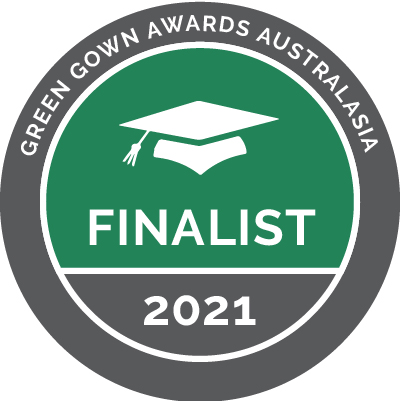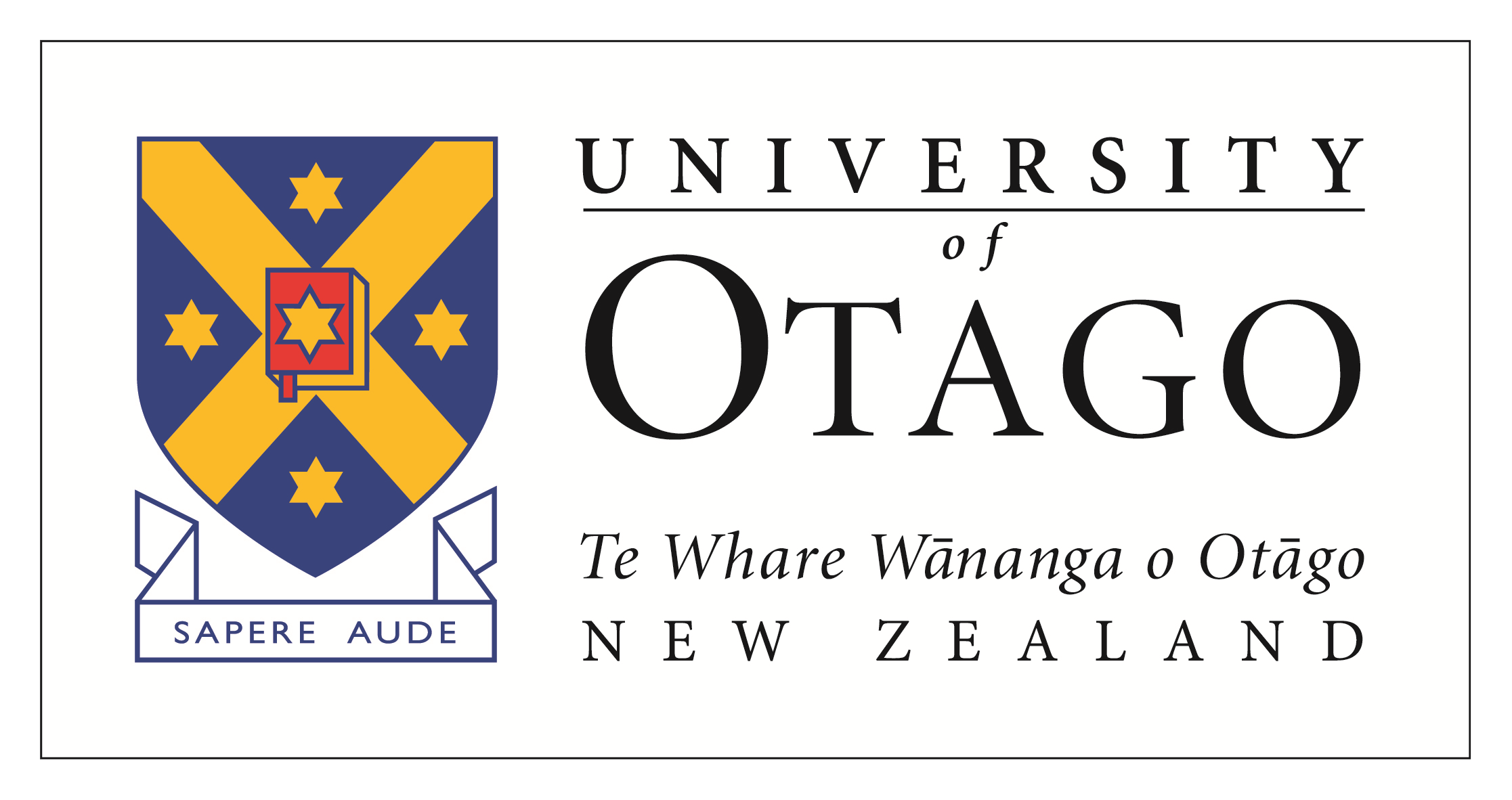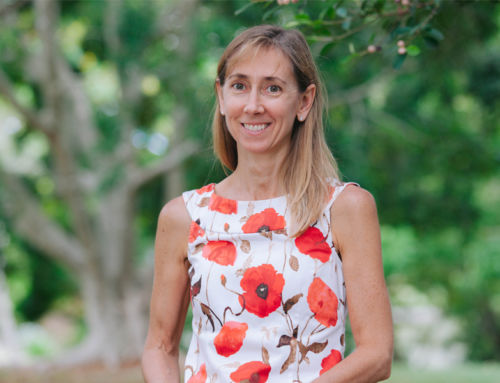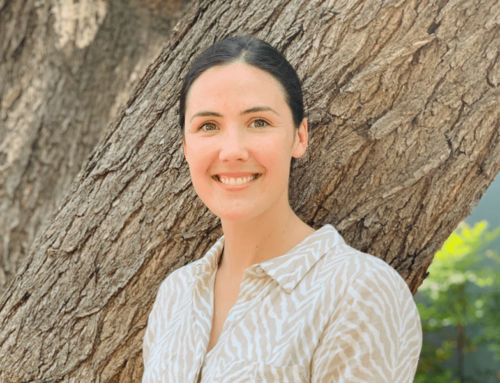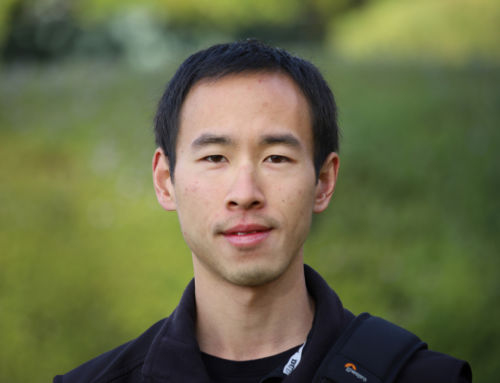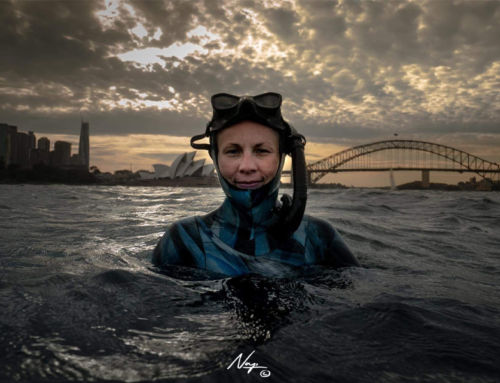University of Otago, Te Whare Wānanga o Otāgo
Since starting in the Sustainability Office in 2019 Jes has made a huge impact not only within the office and the services and initiatives that we offer but across the whole organisation and into the wider community.
Her initial role was to run some student engagement events such as talks and fair-trade stands. She has grown the role through taking on extra responsibilities, stepping up to challenges, and leading innovations. Her impact has included supporting the delivery of the 2019 ACTS conference, developing and implementing an engagement programme (Green Your Scene), establishing a group of part-time employed student leads (Tētēkura), integrating a treaty-based bicultural approach to sustainability, creating collaborations with groups in the wider community, and developing a brand and engagement strategy for student to student communications and media.
In two years she has created a highly successful engagement programme that has put sustainability into action across the institution.
> A closer look
Jes deserves to win because in two years she has created a diverse portfolio of initiatives that have real impact, and are by and large above and beyond the role she was employed to do in our University of Otago Sustainability Office. Rather than deliver an event off of a prescribed calendar, Jes has an uncanny ability to take a good idea, break it apart, look at it through different lenses and produce something with greater impact, that resonates much more with the target audience.
Here are some examples to support this statement:
- When our Te Whare Wānanga o Ōtākou (University of Otago) was about to host the 2019 ACTS conference, the incumbent Head of Sustainability resigned. As the only person left in the Sustainability Office, Jes ended up with a range of responsibilities and expectations well above the role she had held for only a few months. This did not deter Jes. She picked up the reigns, gained support from other teams, opened collaboration with the Otago Polytechnic, drew on an extended group of student volunteers, and delivered an outstanding event at extremely short notice. I observed this from outside the organisation as one of the impressed and willing helpers from the Otago Polytechnic. (I was the polytechnic’s sustainable practice learning and teaching specialist before becoming the University of Otago’s Head of Sustainability).
- Green Impact was supposed to be implemented at our University in 2018 (as part of the three-year strategic plan) but several delays meant it was also looking unlikely to be delivered in 2019 either. Jes came on board and was given the autonomy to implement the programme. Her authentic personality, gentle humour and genuine belief in sustaintability attracted supporters who rallied to get the launch across the line, then she led the implementation with minimal resources and without a manager. Several teams participated, which forged relationships. And, for the first time there was a much wider awareness of the Sustainability Office across our University.
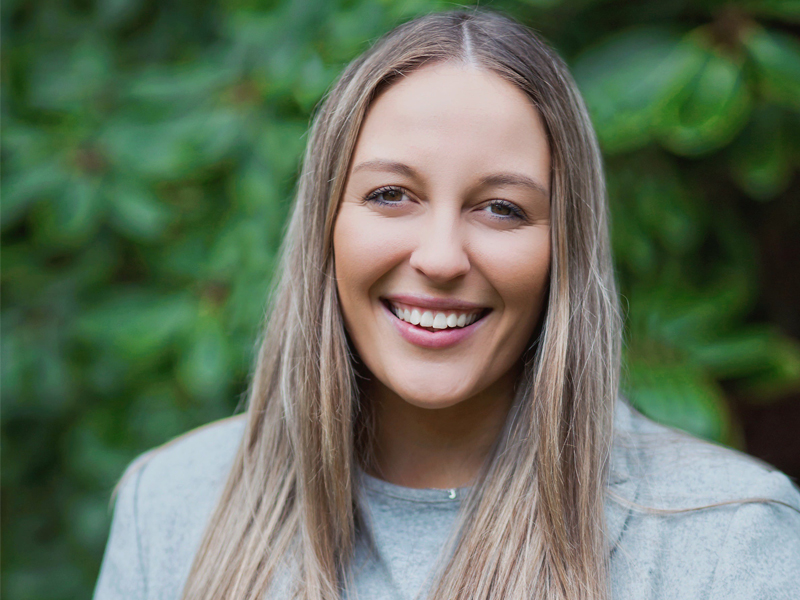
Green Impact is a great scheme, but staff and student feedback indicated it was not the best fit at Otago. This did not deter Jes who took up the challenge of developing a new programme based entirely on that feedback (less administration, more flexibility, more support, and more clearly positioned in Aotearoa/New Zealand). From there Green Your Scene (GYS) was born. This programme was supported by bespoke resources that Jes has continued to improve and iterate. Specific GYS programmes now engage Work Places, Residential Colleges, Kitchens, and Food Outlets while another will be added later in 2021 for events.
During the Covid-19 lockdown, Jes’ continued engagement with GYS teams included creating a wellbeing focus for activities to support staff and students in lockdown in residential colleges, flats and homes. As described below in “impact,” this programme was a huge success.
- In her first year (2019), Jes developed an extensive network of student volunteers to power the Sustainability Office’s work. This number of volunteers comes with a cost – the time to organise them. Jes recognised this and successfully gained funding to establish a two-tier system, now our Sustainability Office employs Tētēkura (Student Leads) part-time to manage the student volunteers. The Tētēkura is the carved prow of a waka (canoe) and our Office of Māori Development gifted this name to represent the leadership role of these students. The portfolio of engagement activities that has developed from this initiative is both diverse and extensive. The impact of the Tētēkura is described in the section below.
- One of the hardest tasks to get right for a Sustainability Office is how to best tell the story of sustainably to such a diverse audience of students. Jes thinks strategically, tactically and technically about solutions to this challenge. She has produced an engagement plan that guides our communication at a strategic level, she uses a range of media channels and strategies to get the best effect, and can produce technically outstanding media assets. These assets are most easily accessed through our Instagram or Facebook The impact of this high-quality engagement is described below.
- Our existing sustainability strategic framework has a significant weakness – it does not speak loudly to the bicultural expectations of universities in Aotearoa/New Zealand. Jes has recognised this and provided role model practice in how to integrate Te Ao Māori perspectives into the work of the Toitū Taiao (Sustainability Office). She has done this by integrating Te Reo Māori (The Māori language) and Tikaka Māori (protocols) into events, resources, meetings, and conversations. Jes has been integral in establishing the credibility of the Sustainability Office with the Office of Māori Development, who are now our partners in developing the next iteration of our University’s Sustainability Strategic framework.
- Dunedin is a university city and collaborations across the community are essential. Jes brought a strong network of connections from her previous role (Department of Conservation Community Ranger) and has continued to develop that network to increase our impact. This network includes Malcam Trust (which helps youths tranisation to meaningful and balanced lives), Dunedin Pride, a range of local sustainably businesses in food and fashion, the Social Impact Studio, Dunedin City Council, and local conservation groups such as Predator Free Dunedin.
> Impact and benefits
The following evidence supports the impact of Jes’ work (described above). External evidence is hyperlinked.
ACTS conference: Successful delivery of the conference, student volunteers gained ideas from other institutions, and our University raised the profile of sustainability both internally and externally.
Green Your Scene
2021 – 57 teams (12 colleges + 11 kitchens + 29 workplace + 5 food outlets)
2020 – 64 teams (13 colleges + 11 kitchens + 32 workplace + 8 food outlets). Despite the COVID-19 disuption, the teams earned 40 Green Your Scene awards, including 11 at the highest “Kowhai” level.
Because of the COVID-19 disruption, Jes changed the marking criteria to support teams to keep working together. Several teams were identified as above and beyond even Kowhai. Jes had a hand in initiating and supporting all these. The outstanding awards went to projects such as a step count challenge that had staff walk virtually across Europe in non-work time, establishing and nurturing a shared community garden, gathering recipes and publishing ‘The College Vegetarian Cookbook’, a café’s commitment to being disposable cup free and enabling sustainbale changes,, a college students’ possum trapping project which was recognised by New Zealand’s Minister for Conservation, and Recreation Services staff for the ‘Sustainable You’ framework which integrated Te Ao Māori (Māori worldview) and sustainability principles into a wellbeing programme.
Tētēkura
Jes created the unique opportunity for six Tētēkura/Student Leads to be employed as part of the Sustainability Office team, to support and improve our University’s culture of sustainability. This offers our students work experience and the chance to invest their passion for sustainability into designing and creating positive changes on campus from the ground up. Jes provides leadership to help Student Leads to focus their impact on the Sustainability Development Goals and our Sustainability Strategic Framework, all while challenging the norm, thinking outside the box, and working collaboratively with our Sustainability Office team. The Tētēkura have produced a “Sustainability Sussed” podcast, regular Waste Diversion Days, Street Clean ups as part of the Sophia Charter, Movie Nights, ‘Unpacked’ events, Social Media takeovers, a regular central campus stall, and a drop in “good chats”. The Tētēkura’s impact has been transformational in terms of our reach through student-to-student communications. This would not have been possible without Jes’ initiative beyond the tasks she was employed to do.
Toitū Te Whenua, Sustainability Week
In 2020, Jes focussed the week on resetting after lockdown, encouraging our staff and students to “Reboot”. The 19 events over five days includied a skip diversion day, Sustainability Market, bike grab, sustainability pub quiz, recycling centre garage sale, Lorax movie night, social media takeovers, submission writing and connections to funding for good ideas. For the week, we collaborated with 22 groups, organisations and businesses, engaged with more than 500 students and reached 200 staff, while social media promotions reached about 7,200 people. Diversion Day diverted six tonnes of glass, two skips of cardboard and eight loads of cans as students sorted their waste.
In 2021, Jes encouraged our community to ‘Be a Legend’, while deliberately pushing boundaries to create a more inclusive notion of ‘legend’. She created an offering of 16 events over seven days to capture SDGs in a different light. Over this week, she collaborated with 38 groups, organisations and businesses, engaged with more than 500 staff and students and sold out our Planet D Drag Show in five days, attracting 140 to learn how SDG’s 3, 5 & 10 connect to sustainability. The week’s other key activities included a meat-free campus day, sustainable living workshops and well-being events.
The week enabled staff and student involvement at the highest levels we had seen, especially with our social media promotion reaching about 7,950 people. Profits from Planet D were donated to Dunedin Pride (NZ$1,488) for Alphabet Soup, Rainbow Leaders and supporting our LGBTQIA+ youth. This has had a University-wide impact on understanding that sustainability goes beyond the ‘green stuff’ and triggered many of the challenging conversations about inclusiveness and equity that need to happen to see the transformation we want.
Bike Grabs for koha
This collaboration shows sustainbaility’s full-circle scope. Jes collaborated with Malcam Trust and our Carrington College to establish the incredibly popular Bike Grab. Bikes reclaimed from landfill or abandoned on campus are repaired by Carrington residents with coaching from Malcam Trust staff. Then the bikes are sold to our University community for a small koha (donation) which goes back to the amazing team at Malcam Trust. This enables affordable access to sustainable transport.
Over three Bike Grabs, 43 bikes have sold and $396 has been donated. Jes has another four Bike Grabs locked in for 2021, and more than 50 bikes ready to repair. With 80 per cent of students living within two km of campus, this higher profile for low emissions transport and easier access to it contributes significantly to the shift to more sustainable travel.
Media and Comms
A key element of engagement is the story telling. Usingtilising social media and a strong brand has ensured successful engagement over the plast three3 years but became especially crucial over lockdown when during the COVID-19 nationwdie lockdownhit. Jes has grown our social media audience – Facebook and Instagram -– audience w hich currently totals about 2,790,. with an emphasis on Instagram is for engagement and Facebook, for events. Jes also developed a Sustainabilty Office iy brand guide for sustainability which means so we have a very recognisable look and feel. This includes branding for specific events. This level of media development and brand awareness is far beyond the expectations of her original role, and is . This well demonstrated in the video she led the producedtion of to show the link between our work and the SDGs.
Integration of Te Ao Māori
Through our engagement outputs, Jes has advocated and allied with our Māori community. We ensure all roles, projects, campaigns and new resources have a Te Reo (Māori language) translation and where appropriate ewe use the Te Reo Māori as the primary name (see Jes’ job title). This small but notable step is our starting point in bridging sustainability and indigenous knowledge together at the ground level as the Sustainability Office work collaboratively with the Office of Māori Development at a strategic level. We also ensure projects and messaging is intertwined with tikanga, manakitanga, kaitiakitanga and mahi tahi at the very least, with our key message being “looking after papatūānuku (mother earth) and her tāngata (people)”.
Disposable Cup Free Campus
Jes spent 4 months of convincing, supporting and establishing an engagement strategy that provided comfort for the University Union to go disposable cup-free in July 2019. The three busiest cafés made the change, which had already prevented more than 25,000 cups from going to landfill as of December 2019. The change had been so well supported that the beginning of 2020 saw all campus outlets make the move and now some non-university cafes on the edge of campus are doing the same.
> Leadership and engagement
Jes has evolved her role as a Kaitakwaenga to lead the Tētēkura. She aligns this work directly to the university Sustainability Strategic Framework and the SDGs and in doing so has had an impact across the University.
Her actions are distinctive in their diversity, creativity, reach across the University community and beyond, and in framing her work within the bicultural context of Aotearoa. Her trademark is in a strong and clear focus on student voice.
The link in the descriptions above provide extensive evidence of dissemination and sharing of this work.
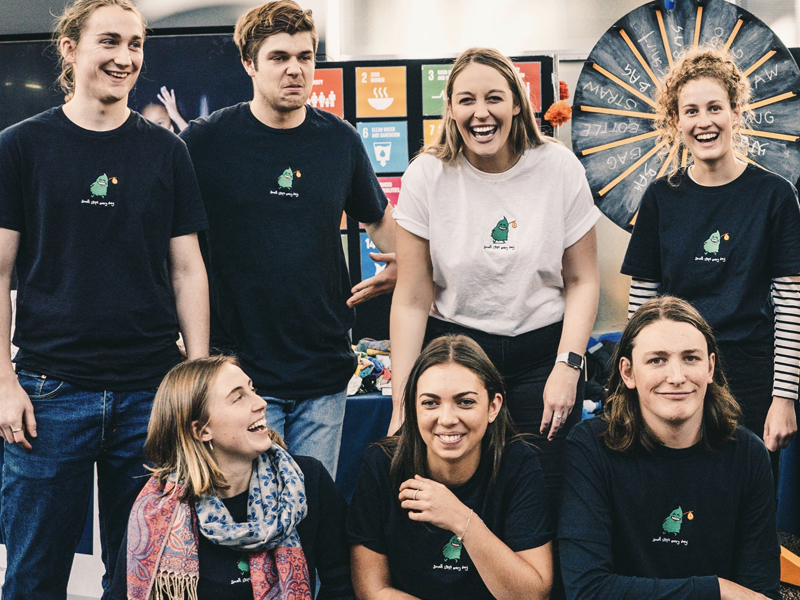
> Wider societal impact
The collaborative nature of Jes’ work links the student and City communities in a common interest in a thriving future. This connectedness is the legacy of Jes’ work. This links in media are the best way to describe the extent to which Jes’ work reached out and engages with the wider community.
Jes Joining the team- https://www.otago.ac.nz/otagobulletin/news/otago712921.html
Jes’ work in student magavine-https://issuu.com/otagocomms/docs/te_aka_tauira_-_issue_two_2021
Jes’ post covid reboot- https://www.odt.co.nz/news/dunedin/reboot-your-world-more-sustainably-post-covid-19
Jes’ disposable cup free- https://www.otago.ac.nz/otagobulletin/news/otago730144.html –
Jes launching green your scene- https://www.otago.ac.nz/otagobulletin/news/otago757472.html – GYS awards 2020
Jes working in the community on diversion days- https://www.odt.co.nz/the-star/sustainability-week-skips-action
Jes leading sustainability week- https://www.otago.ac.nz/otagobulletin/news/otago740278.html – susty week 2020

